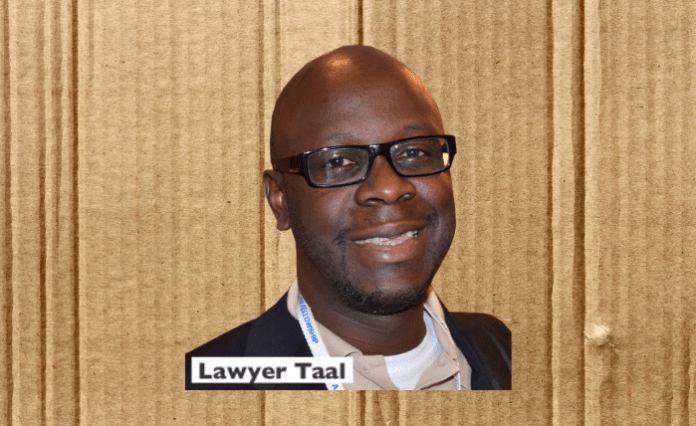
By Omar Bah
Delivering a detailed but strong statement before judges, politicians, lawyers and senior government officials at the opening of the Legal Year on Sunday, the Gambia Bar Association president has said there cannot be a meaningful truth-seeking process, reconciliation and healing in the absence of addressing impunity and the question of justice and accountability.
“For without justice, reconciliation will be a tall order,” Salieu Taal said.
He said The Gambia has made a name globally for establishing a very successful truth-seeking process which was very transparent, inclusive and participatory.
“But from truth-seeking, it is imperative to ensure there is justice and accountability for the atrocities committed against Gambians and other West Africans,” Taal added.
He commended the Ministry of Justice for taking strong steps to establish a hybrid court to try Jammeh-era crimes.
“This is a testament of the commitment of the government to ensure the proper prosecution of perpetrators who committed crimes both under our domestic and international law. The Bar will continue to support and complement the efforts of the government in the implementation of the TRRC recommendations, particularly in the area of criminal accountability,” he added.
Turning to matters of delivering justice in Gambian courts, the Bar president raised issues about the challenges faced by litigants in the jurisdiction due to the long delays and difficulties faced in the enforcement of judgements.
“The enforcement of judgement particularly in land matters is fraught with serious challenges and difficulties in the Gambia. It is not unusual for litigants to have judgments and yet unable to enforce their judgment over a number of years after the exhaustion of all appeals,” he added.
Taal said the current state of affairs with regard to the enforcement of judgments is “really deplorable and needs urgent attention.” “Non-enforceability or undue delays of the enforcement of judgment seriously undermines confidence in judicial processes,” he stated.
He said while the judiciary made significant strides since 2017, the road to justice is still a pipe dream for the average litigant in the Gambia and a long one for that matter.
“High profile cases tend to get expedited hearings and are concluded in a relatively shorter period of time. However, the majority of cases both civil and criminal can take an inordinate amount of time to be concluded in our jurisdiction,” he said.
Taal added that the delays in the conclusion of cases are even more problematic in criminal cases especially in relation to accused persons charged with non-bailable offences or indigents defendants unable to fulfil bail conditions. “This continues to add to the backlog of cases in the court system. The private bar, Ministry of Justice, the police and the Bench all have a collective responsibility to do more in this regard to help expedite delivery of justice effectively and efficiently,” he stressed.



